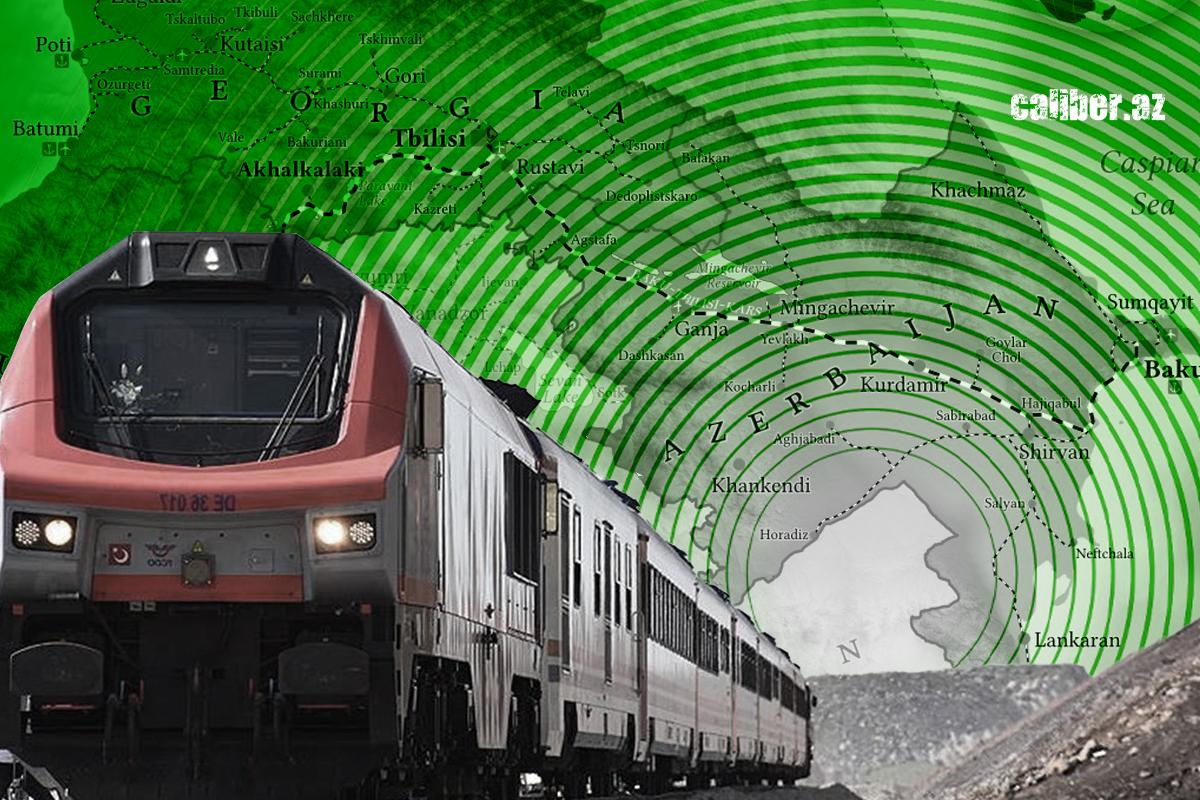US, EU up the ante in South Caucasus, drawing Armenia into grand gamble Yerevan underestimates the consequences
In an interview with Caliber.Az, Esen Usubaliev, a Kyrgyz expert on international relations and a candidate in historical sciences, shared his views on the situation in the South Caucasus.
When asked about the upcoming conference of the EU, US and Armenia, which is scheduled for April 5 and where a military pact is planned to be concluded, he said that the situation in the region has always been complex due to a lack of respect for international law. He highlighted Armenia's occupation of Azerbaijani territory, and the international community's calls for liberation, which have gone ignored by Armenian leadership. Usubaliev believes that the Armenian leadership lacks a willingness to compromise and only engages in negotiations when force is involved, which is an important factor to consider when analyzing the situation in the South Caucasus.

"The imminent conference is expected to witness the signing of security guarantees in the EU-US-Armenia triangle. The security agreement is anticipated to be similar to the agreement reached with Ukraine, which England, Germany, and France signed to ensure security guarantees. The agreement aims to provide military-technical and financial support to Armenia in the event of an escalation of the situation with Azerbaijan. However, it is unlikely that the EU and the US will form a military alliance with Armenia. The Armenian leadership's strategic move to reinforce its military-technical position to strengthen its position in the negotiation process with Azerbaijan is understandable, given its recent defeat in the Second Karabakh War," he said.
"It is challenging to determine the origin of the idea of rapid rearmament and the corresponding effect it will have on Azerbaijan. However, several years of military and other infrastructural development are imperative to shift the military balance in the South Caucasus region. The EU and the US are relying on the Armenian leadership's shortsightedness, which may prompt them to take some adventurous actions. The US and the EU are seemingly considering the consequences of their actions last, while it is unclear if Armenia is thinking about the implications at all. The impression is that Armenia has little understanding of the ramifications of the 'South Caucasus game' that the EU and the US have drawn it into," the expert believes.

- Meanwhile, Yerevan remains adamant in its refusal to open the Zangezur passage. However, this position now looks utterly absurd in light of the active development of new logistical routes in the South Caucasus and Central Asia, such as the Middle Corridor...
- Armenia's position in the South Caucasus is now extremely precarious, first and foremost in economic and political terms, not to mention military-strategic ones. Armenia's policy in Central Asia itself is widely perceived as destructive, both in terms of the leadership's position on the prospects of withdrawal from the CSTO and the issue of the Middle Corridor. Time is running out for Armenia, and the further it moves away from dialogue and normalising relations with Türkiye, and especially from concluding a peace treaty with Azerbaijan, the greater the risks to domestic political and economic stability. And it may not come down to the influence of Russia and Iran. There will be revolutionary changes in this country, and very quickly. But right now we are watching Prime Minister Pashinyan's strategic plan to destroy his state's prospects in the region.
As for the Zangezur Corridor, despite its obvious importance for the Middle Corridor and the trade routes from Central Asia and China to Europe, it seems that for Azerbaijan it has a more domestic significance as an important element in the development of its territory - ensuring uninterrupted communication between parts of its country, its development and connection with Türkiye. And only then as a component of the Middle Corridor. It is obvious that the Azerbaijan-Georgia-Türkiye route is working perfectly and is already part of the Middle Corridor communications.
Bishkek and the Central Asian countries will readily support any transport projects that pass through the South Caucasus, taking into account the issues of logistics and security. Armenia's positions, which limit its prospects for economic development, transport corridors and benefits from the transit of goods, are generally incomprehensible to the other members of the organisation in Central Asia (Kyrgyzstan, Kazakhstan and EAEU partner Uzbekistan).
- Where do China and the EU stand when it comes to the Central Corridor?
- At the moment, the transport corridors that are being created in Central Asia require many countries to cooperate, and I think for China it doesn't matter which route they take or what they are called. In particular, whether it will be the Central Corridor (China - Türkiye) or the multimodal corridor Kyrgyzstan - Uzbekistan - Turkmenistan - Russia with access to the Caspian Sea. Everything depends on the question of funding. As far as the situation allows us to say now, Türkiye itself has no plans to finance the construction of transport corridors on its own, while China is in no hurry to offer financing because it understands that this is not only an economic but also a political issue, from which it also wants to reap its economic and political dividends.

Even the EU, despite plans to provide around €10 billion for the EU-Central Asia connectivity project within the Global Gateway, can only provide €2 billion so far, and not fully and not immediately. Nevertheless, the next EU-Central Asia summit, scheduled for April, will discuss the construction of routes from China to the EU, including the Caspian Sea.
It is an extremely important and difficult task to harmonise the interests and synchronise the efforts of all participants in transport projects in Central Asia. However, a multimodal corridor bypassing Kazakhstan with access to Turkmenistan and the Caspian Sea coast is much more favourable for Kyrgyzstan and other countries. This offers the possibility of a corridor to Russia as well as a link to the North-South corridor. If the Middle Corridor is fully operational by then, including the opening of the Zangezur direction, it will benefit the vast area of Central Asia and the South Caucasus and, of course, Azerbaijan.
- France is making an active effort to gain a foothold in the South Caucasus region. What do you think Macron's policy in general, in the South Caucasus, and his support for Armenia will achieve?
- France is living up to stereotypes that used to be reality. It used to be one of the driving forces of the EU and a major political player in Central and North Africa, Asia and Europe. Today, the remnants of its former greatness still dominate France's political self-image, but the situation shows that Paris is far from the perception of reality - the country's economic and political problems are becoming apparent. Nevertheless, the South Caucasus and Ukraine are the only elements of foreign policy where France can partially realise a semblance of an independent foreign policy, although it is obvious that Macron does not take any action without careful consultation with the US.
At the same time, it's clear that Paris understands that mediating the negotiations between Azerbaijan and Armenia is out of the question: Baku will no longer accept this role for France. However, strengthening Armenian-French relations and trying to pump Armenia with old French weapons are only temporary. France does not have the potential to play a long-term strategic game in the South Caucasus, let alone try to compete with Türkiye, Russia and Iran in the region. France's role is purely petty. It is to delay the conclusion of a peace treaty between Armenia and Azerbaijan and the normalisation of relations with Türkiye until a more acceptable political scenario involving the EU and the US is worked out. The role of France, which for a long time has not been seen as a traditional participant in foreign policy processes in any sense of the word, can only be interpreted in this context.








